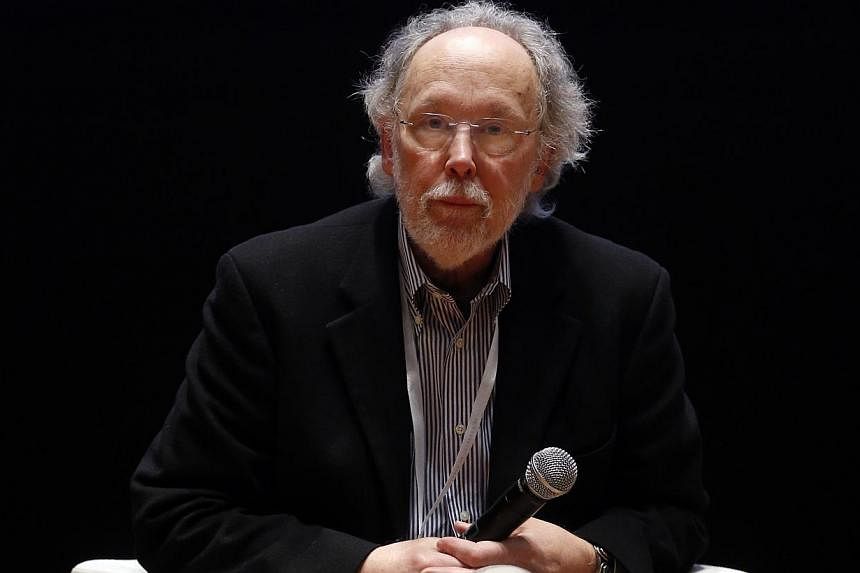It is difficult for any lecture to be both deeply sobering and enormously inspiring, but American author Barry Lopez managed to accomplish both in the space of an hour during the closing lecture at the Singapore Writers Festival on Sunday.
The intrepid 69-year-old, whose works of non-fiction have brought him to far-flung corners of the globe, is best known for his National Book Award-winning study of the furthest north, Arctic Dreams. And in a world of tumultuous climate change and ocean acidification, Lopez reaffirmed "literature's place in the international tsunami that's hurtling towards us across a metaphorical ocean".
He spoke to a rapt audience, filling about 85 per cent of the National Museum of Singapore's Gallery Theatre, about the importance of storytelling and its social function, and the writer's responsibility to be a bearer of cultural memory.
He said: "The Achilles heel of human consciousness is that we forget. We forget what we mean by our lives, we forget what we promised ourselves in our youth we would never do, we forget the importance of family and of profound friendships in our quest for material success in the modern world...
"Story, I think, emerged as a way to deal with forgetfulness of this sort. Stories recreate in us a kind of order we recognise as foundational. The pattern of a story, its plot and characterisation, and the rhythm of its locutions, enters the natural chaos of our own interiors."
Lopez also emphasised that "the importance of the storyteller gives way to the importance of the story".
He recalled an encounter he had with an aboriginal man in Australia's Alice Springs. He had been trying to explain the difference between fiction and non-fiction in western culture. The man felt that this distinction between what was emotionally true and factually true was not as important in his culture, saying: "An authentic story is about us... an inauthentic story is just about the person telling the story."
To this, the audience of writers and readers alike laughed quietly and nodded. He encouraged the audience to acknowledge the reader's existence when writing, that "there is another intellect, another imagination there, whom the writer respects".
During the question and answer session, Lopez also spoke at length as to how he respectfully integrated himself into societies of traditional people in remote corners of the planet. "My experience has been to immerse myself in a social group and to try to learn it. And the process of learning is either what makes you welcome in the community or unwelcome in the community," he said.
"What I'm trying to do as a writer is to become intimate with a group of people in whatever way I can do that by learning the language, or playing with the children, or gathering firewood, or just being of use."
Many audience members took copious amounts of notes during the lecture, including Sandra Tonkinson, the head of a digital magazine. She brought four books for Lopez to autograph.
She said: "It was inspiring and quietly powerful. I think most people talk about what's wrong with the world, and then just leave it there, leave us with hopelessness and resignation and this sense of inability to do anything about our lives. But he doesn't do that... what he's saying and what he's writing about is very thoughtful and helpful."
Follow Corrie Tan on Twitter @CorrieTan


